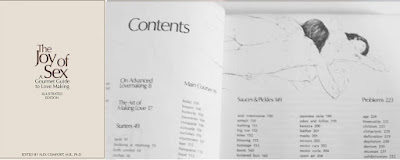February 24, 2022
Posted by Jay Livingston
Words change. Usually the change in the literal meaning is so gradual that it's hard to see. More visile may be the change in the political and emotional meanings that surround a word, and those meanings often depending on who is using it.
“Get your cotton-picking hands off that” is what the substitute teacher at Farmington High in Michigan said. The Black student she said it to couldn’t believe his ears. “What did you say?” She repeated it and explained. “This kind of comment was a very common comment. And it was a very innocent comment. It was not meant to be offensive in any way.”
The verb tense is important. The adjective “cotton-picking” was very common. I don’t know how old the substitute teacher is, but on the video, she does not sound young. (You can hear her on the video posted to TikTok.) She probably thinks of the word the way it was used in the previous century. Fifty years ago, cotton-picking was a word intellectuals might use to make a statement seem down-to-earth. Milton Friedman in 1979: “before government and OPEC stuck their cotton-picking fingers into the pricing of energy.” A character on a sitcom — a White, non-Southern character — might say, “Are you out of your cotton-picking mind?” It was funnier that way, believe me. It was a way of expressing disapproval but in a friendly, joking manner. White people used it as way to sound folksy and informal, perhaps in the way some well-educated, non-Southern people in this century have adopted “y’all.”
Google nGrams is not a good source on this one, but for what it’s worth, it shows cotton-picking as an adjective increasing till 1940 and declining steadily thereafter.
I suspect that nearly all of those instances from before 1950 were literal — things like references to cotton-picking machines. The metaphorical, disparaging cotton-picking came later. You can see this in the line for cotton-pickin’ since the dropped-g version would not have been used to talk about farm equipment. The earliest use the OED could find for this meaning was for this more colloquial spelling. It appeared in 1958, in the New York Post, which was then a liberal newspaper.* “I don’t think it's anybody’s cotton-pickin'’business what you’re doing.”
Of course, using cotton-picking this way worked only for people whose lives and world lay far from the actual picking of cotton. That was the world of the Michigan substitute teacher, and she used the word without ever thinking about its origins, in the same etymology-ignoring way we all speak. But for the Black kid, the word evoked the history of slavery and post-bellum racial exploitation in the Jim Crow South. And there was nothing friendly, funny, or folksy about it.
The teacher later said that she now realized that the term was offensive, but she maintained that her motives and intentions were innocent if ignorant. If only she had been — what’s the word here? If only there were a word that means aware of racist aspects of US history, aware of how privilege even today has a racial component, and sensitive to the ways those things might look to Black people. Wait, there is a word — “woke.” Or maybe I should say that there was a word. The political and emotional connotation has changed rapidly; so have the people who use it. And the change has been rapid. The people who use woke now are White, and they are waving it about as something to be rejected.
--------------
*The joke back then was that a front-page weather story in the Post might run with the headline: Cold Snap in City. Negroes, Jews Hardest Hit.






